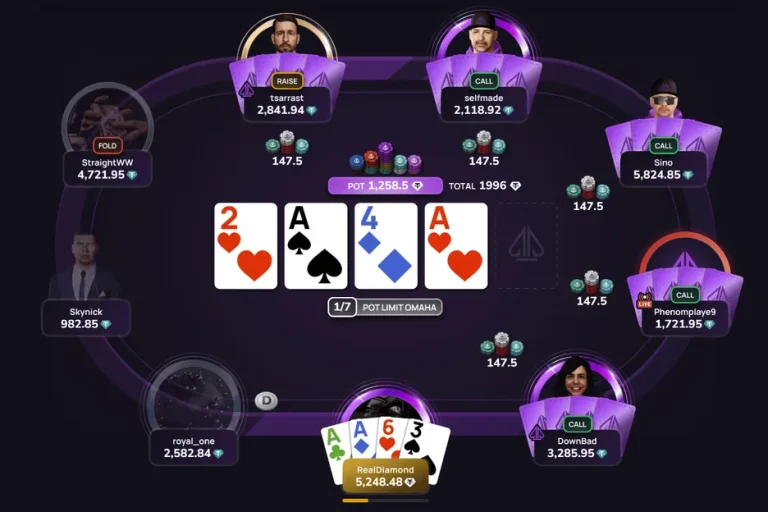In poker variants that use the Ace-to-Five (A-5) lowball hand ranking system, evaluating hand strength can be tricky, especially when dealing with non-straight but connected low cards like 6-4-3-2-A. Unlike traditional poker games where high cards dominate, lowball games reward the lowest unpaired, unconnected hands — and understanding how to properly value them is essential for success in games like Razz, 2-7 Lowball, and Triple Draw Lowball (when using A-5 rules).
Understanding A-5 Lowball Hand Rankings
Under the A-5 system:
-
Straights and flushes do not count against your hand.
-
Aces are always low.
-
Pairs are bad — the fewer, the better.
-
The best possible hand is 5-4-3-2-A, commonly referred to as the “wheel.”
The goal is to make the lowest five-card hand possible, without pairs.
Evaluating 6-4-3-2-A
The hand 6-4-3-2-A is an excellent lowball hand, ranking just below the wheel. Here’s why:
-
It contains no pairs.
-
All cards are unique in rank.
-
A is low and helps reduce the hand’s total value.
-
Straights don’t penalize you in A-5, so 6-4-3-2-A is not considered a straight.
In this system, hands are compared highest card first, so:
-
6-4-3-2-A beats 6-5-4-3-2 (because the second-highest card, 4, beats 5)
-
6-4-3-2-A loses to 5-4-3-2-A (because 5 is lower than 6)
Comparing with Other Low Hands
To get comfortable evaluating hands like 6-4-3-2-A, it’s helpful to know how it fares against other commonly held low hands:
-
Beats:
-
7-4-3-2-A
-
6-5-4-2-A
-
6-4-3-2-3 (pair)
-
-
Loses to:
-
5-4-3-2-A
-
6-3-2-A-J (since J is higher than 6, but A-5 ranks by highest-lowest)
-
In essence, 6-low hands are still top-tier in A-5 games, and the kicker values matter only when comparing hands with the same top card.
Strategic Considerations
When holding a hand like 6-4-3-2-A, you’re usually ahead of most draws and many made hands in lowball formats. Here’s how to use that to your advantage:
-
Play Aggressively Post-Draw: If you’ve made 6-4-3-2-A and your opponent draws, bet or raise to apply pressure.
-
Value Bet Thinly: In heads-up spots where your opponent might have a 7-low or worse, your 6-low is strong enough to extract value.
-
Avoid Overplaying: Against an opponent who stands pat early or draws one, be cautious — they could have a wheel or 6-3-low combinations.
Drawing Toward a Hand Like 6-4-3-2-A
When you’re drawing toward this kind of hand, consider the following:
-
If you already hold four of the five cards (e.g., 4-3-2-A), you have strong equity with one draw remaining.
-
Be cautious about drawing to cards like 5 or 6 that could pair your hand.
-
Prioritize hands that can result in unpaired, non-high combinations with 6 or lower as the highest card.
FAQ
1. Is 6-4-3-2-A considered a straight in A-5 lowball games?
No, straights (and flushes) do not count against you in A-5 lowball. So, 6-4-3-2-A is a strong five-card low, not a straight.
2. How does 6-4-3-2-A compare to 6-5-3-2-A in A-5?
6-4-3-2-A is better. In lowball, the hand with the lowest highest card wins. If the top cards tie, the next highest card is compared — 4 beats 5.
3. Should I always play aggressively with a 6-low hand?
Not always. While 6-low is strong, consider your opponent’s actions — if they stand pat early or apply pressure post-draw, they could hold a better hand like a wheel (5-low). Adjust your aggression based on the situation.


